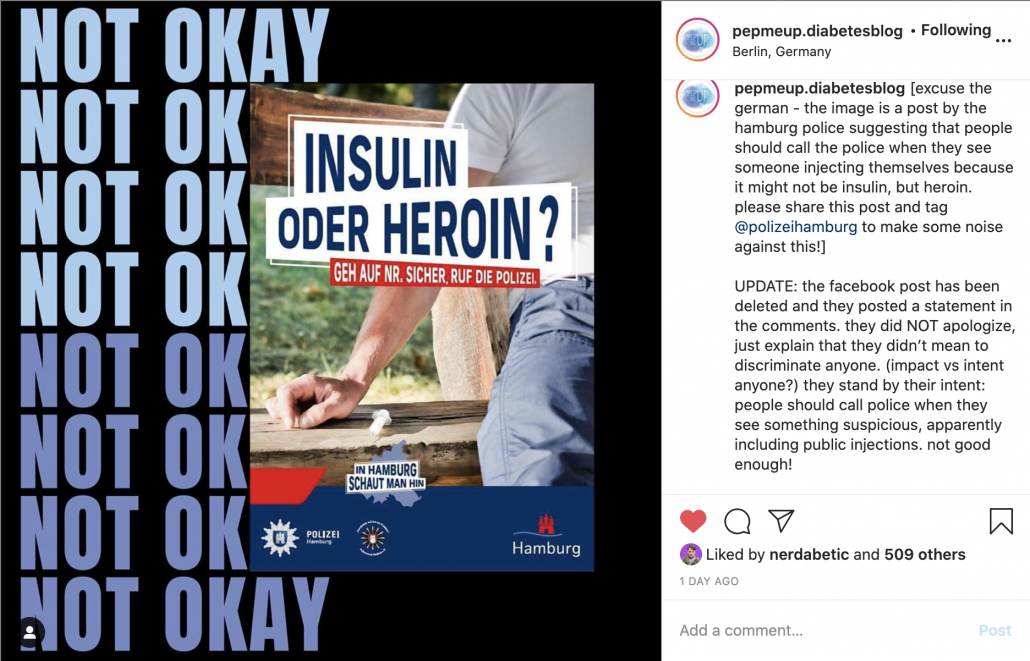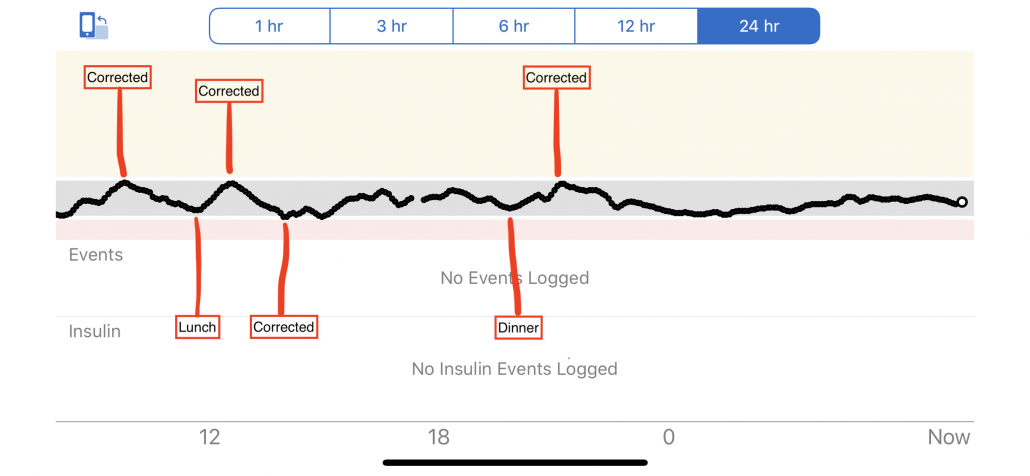Diabetes & Discrimination?
I’m sure you (too) have a story about discrimination against you because you had diabetes?
On today’s #type1thursday, I want to hear your stories!
What brought this on was a very unfortunate ad by the police in Hamburg, Germany, where they appealed to people to call the police of they saw someone injecting themselves. With the headline “Insulin or Heroin?” Wow. Ouch! (see the image below!)
I share a few instances of my own experience with diabetes & discrimination, perhaps you can relate to some of them, too?
This is the image that my friend Steffi from Pep Me Up Diabetes Blog shared on her Instagram. (Steffi also has some awesome tools to Pep Up your diabetes, check it out here!)

👉🏼 What are your stories about diabetes and discrimination? And how can/should we react to it? Let’s chat! 👈🏼
Disclaimer
The only purpose of this video and website is to educate and to inform. It is no substitute for professional care by a doctor or other qualified medical professional. This video and website is provided on the understanding that it does not constitute medical or other professional advice or services. Instead, we encourage you to discuss your options with a health care provider who specializes in treating Type 1 Diabetes.

